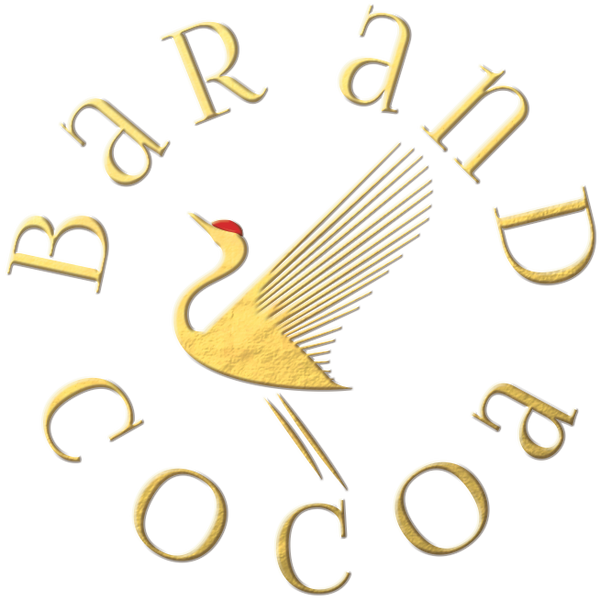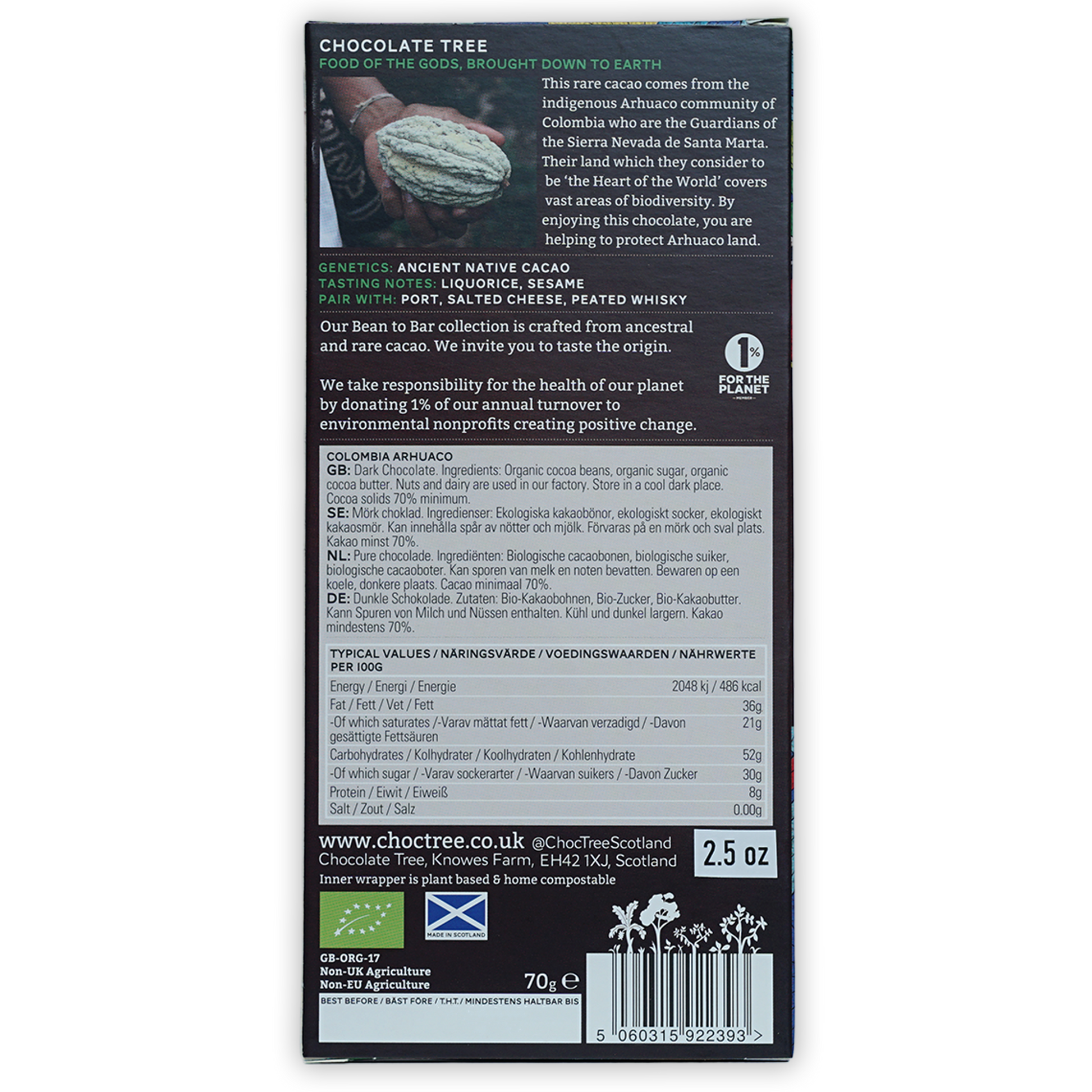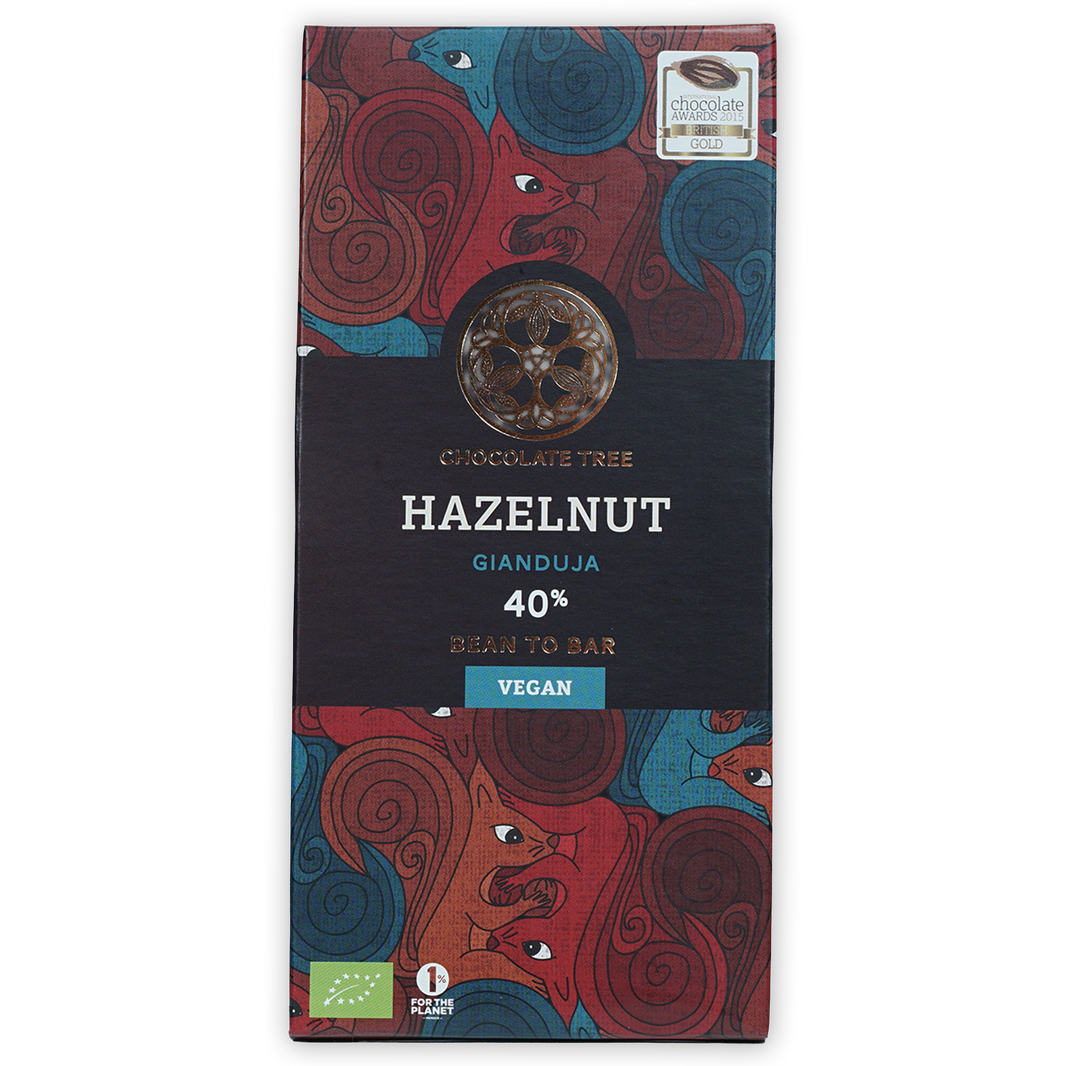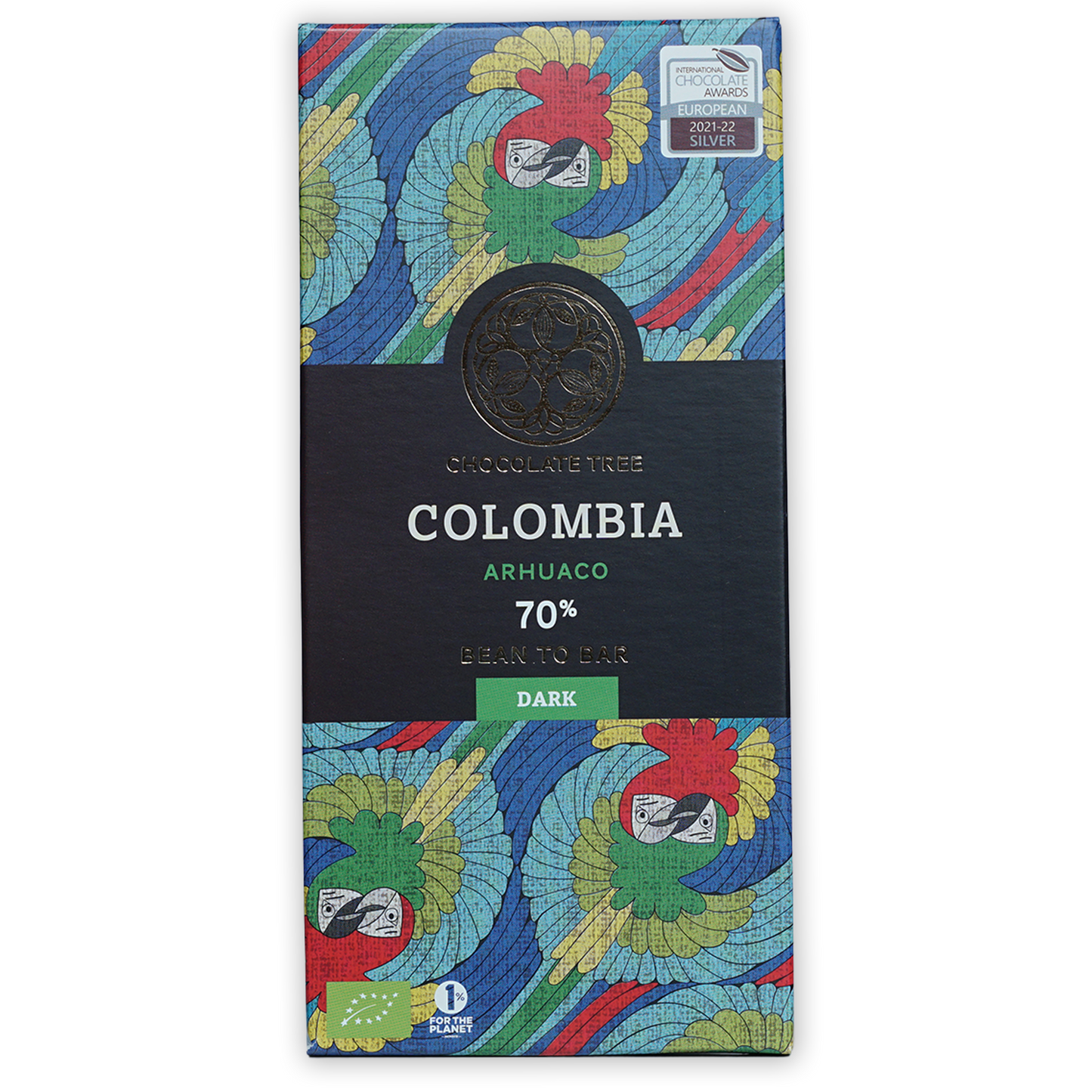
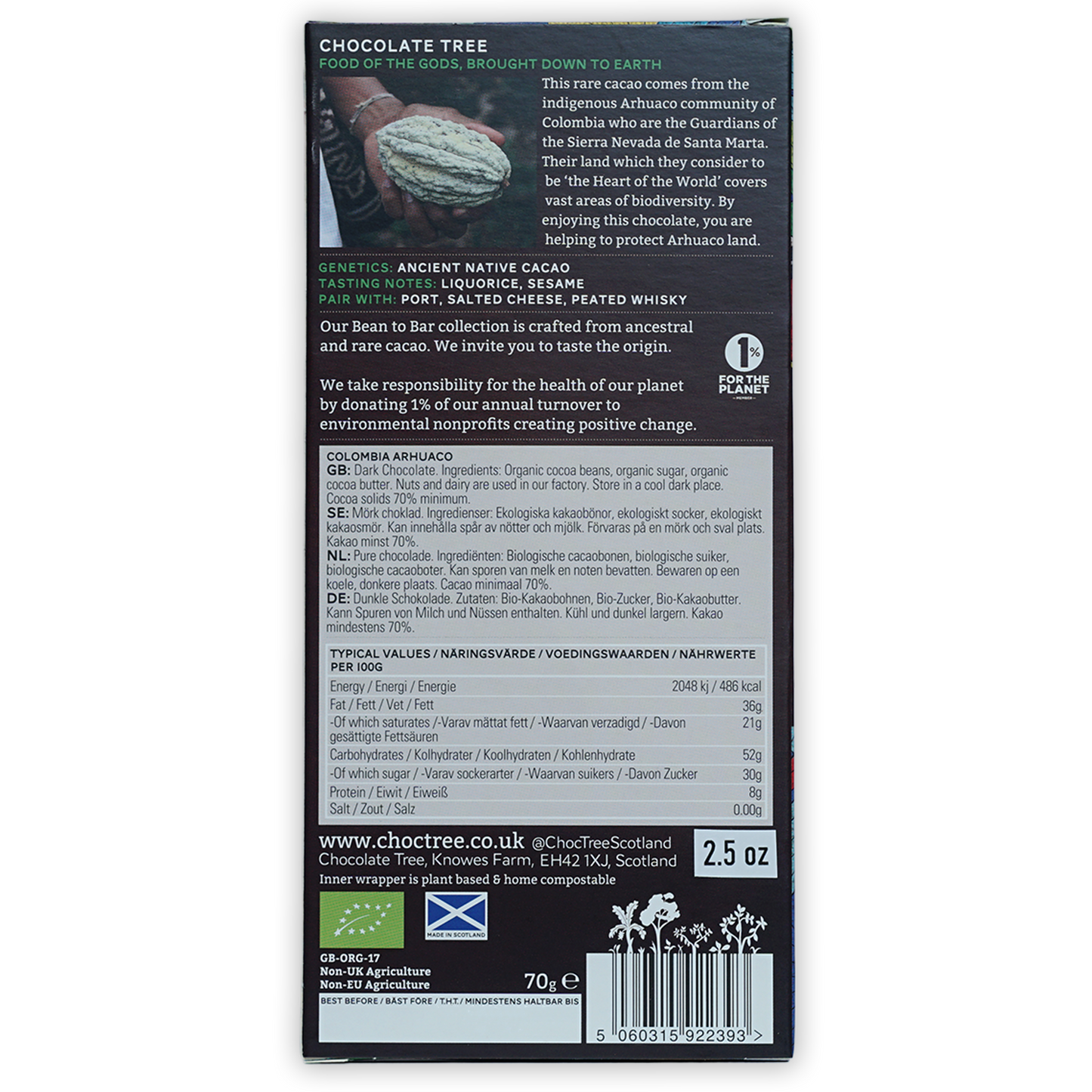
Maker
Chocolate TreeSince 2005, Chocolate Tree has been crafting award-winning organic chocolate with a mission to protect biodiversity and uplift farming communities. From their micro-factory in East Lothian, Scotland, founders Alastair and Friederike Gower work with agro-forested cacao sourced from smallholder farms across South and Central America. Their range spans elegant single-estate origin bars to playful, flavor-packed inclusions—all made with simple, sustainably sourced ingredients. Distinctive tessellation designs on their biodegradable packaging reflect the origins of the cacao itself, capturing the brand’s down-to-earth yet artisanal spirit.
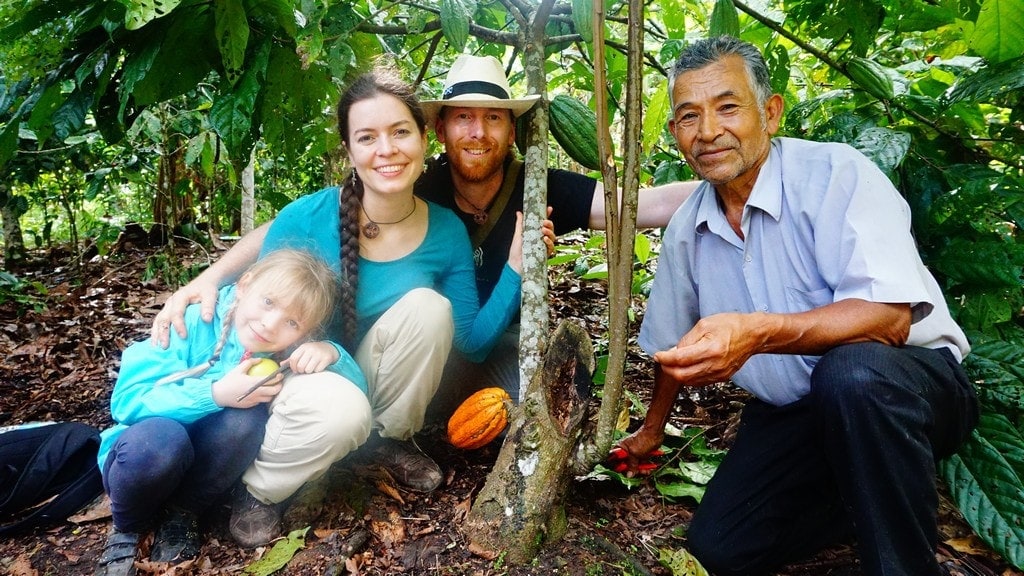
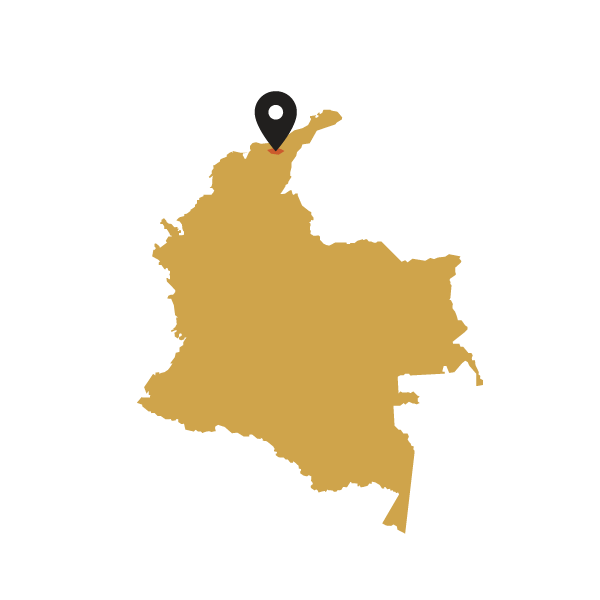
Cacao Region
Sierra Nevada, ColombiaThe Sierra Nevada de Santa Marta is a Colombian mountain range just 50 miles from the Venezuelan border. The region is popular with visitors, in part thanks to the development of cultural tourism infrastructure centered around the indigenous Arhuaco peoples. Cacao from the Sierra Nevada region has become particularly famous thanks to farmers’ high degree of technical expertise— they’re even running their own pollination trials to improve quality and yields.
Cacao Strain
CriolloCriollo is the only one of those original three which has proven to be its own evolutionarily unique type. The clusters were finally identified in 2008 using hundreds of samples collected throughout the Americas over the previous century. With the least genetic diversity of the ten, criollo cacaos are the most predictable in terms of both appearance and flavor, as well as proper post-harvest protocol; they’re known to have a very chocolaty base flavor and little to no bitterness. Some criollos also show a light nuttiness or florality, but overall they’re prized for their mild flavor, and under-cultivated due to low yield. Criollo is the only genetic cluster found growing wild in the primary forests of Central America.
